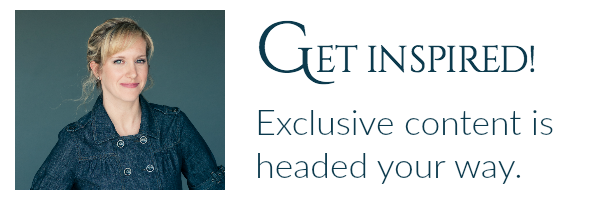by Kelli Stuart | Adoption, Elsewhere, Life, Motherhood, Raising Children, Writing
I’m writing at both Extraordinary Mommy and Mercy Found Ministries this week. I’d love to have you read along!
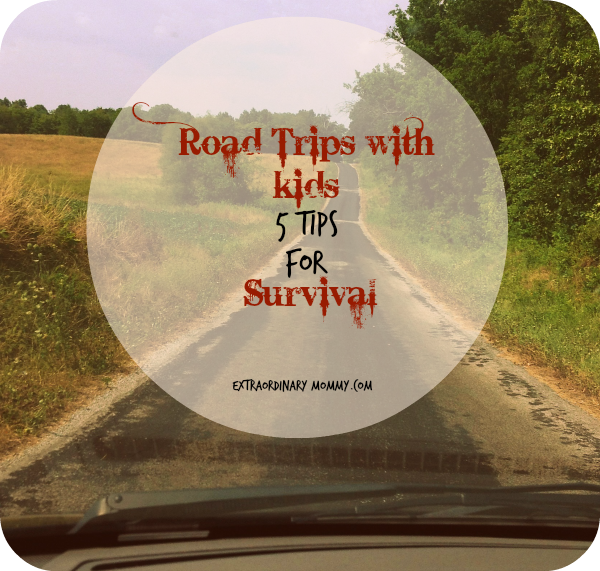
When my oldest was two years old, my husband and I planned a road trip to see family. I packed the car full of all measure of educational toys, books, crayons and paper, and other fun activities for the road. A friend had given me a portable DVD player, which I packed, but I scoffed at the idea of letting my child wile the hours away watching Elmo.
“I grew up reading and sitting quietly in a car!” I boldly proclaimed. “I didn’t need to be entertained by a mini-TV, and neither will my children!”
About five hours into our exciting family road trip, I was completely and totally exhausted. As our little angel kicked his legs and cried in frustration, my husband looked at me with raised eyebrows.
“You know,” he said. “You don’t have to be a matyr for motherhood. Technology isgood.“
I sighed, popped Elmo into the DVD player, and watched in amazement as my son grew mesmerized by the sights and sounds, then fell asleep for the remainder of the trip.
We’ve since added two more children to our brood, which means that road trips are a necessity if we want to see our family who all live sixteen hours away. I’ve even made the long trek home on my own with the kids in tow, and I’ve picked up a few tricks and tips along the way.
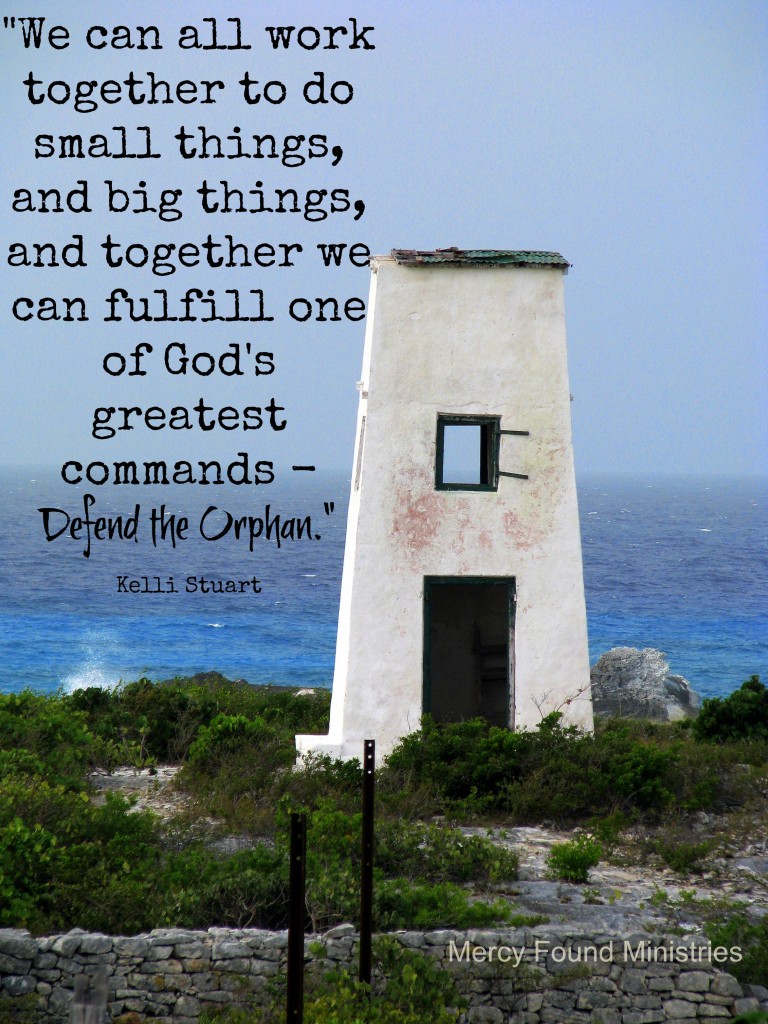
Two years ago, I sat at a table in a hotel in Tanzania with a small group of bloggers. It was our final night before departing to head home, back to our homes, our country, our lives that would all now feel a little too comfortable.
We were there on behalf of Compassion International, a team of writers meant to help raise awareness of the great work that Compassion does worldwide for children and families living in extreme poverty.
Our leader, Shaun Groves, told us the story of Everett Swanson, founder of Compassion Interntaional. Upon seeing the desperate orphan crisis in Korea during the Korean war, a missionary friend of Swanson’s asked him the simple, but poignant question – “Now that you know about it, what will you do?”
Compassion International is the living, thriving testimony of a man who could not go on as he had before.
Adoption is a unique ministry. You will see statistics floating around from time to time informing us of the fact that if every family inside the church were to adopt one child, there would, effectively, be no more orphan crisis around the world.
While it’s a nice, utopian idea, the fact is this is a useless argument. There will always be an orphan crisis, because we live in a broken world, comprised of broken people. While adoption is a beautiful ministry, it is one that is birthed out of brokenness.
Add to that the very real fact that not every family is called to adopt and raise a child in their home. This does not, however, excuse us from the responsibility to care for the fatherless.
by Kelli Stuart | Faith, Life, Novel, World War II, Writing
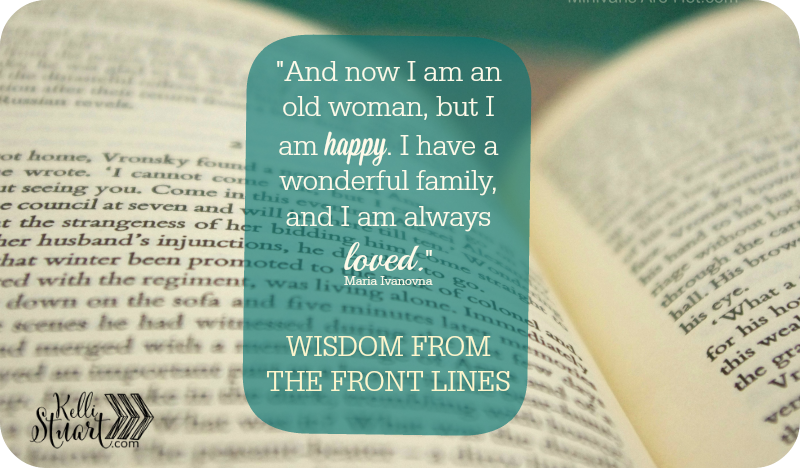
This is the final installment in my series of stories from Ukrainian World War II survivors. I leave you with Maria. I first heard Maria’s story as a sixteen year old, while on a mission trip to Kiev, Ukraine. Her story sparked a passion in me to know more – to understand better how this Great War affected the world.
Maria’s story is the one that started it all. My entire life shifted when I heard her retell of the days she was taken to Germany and forced to build artillery for the enemy. Maria was a delightful woman to speak with. Her eyes danced, moving in rhythm with her words. I will forever be grateful to her for entrusting me with her history.
A story I now share with you.
“The morning came when we were to go to the station. My sister Anna and I left together. My older brothers were already gone, fighting on the front for our safety. Papa was very ill so he could not accompany us.
When we arrived [the Nazis] forced us all to stand in line for hours while they walked around screaming at us. Finally, we were inspected and separated onto different trains.
When I reached the front of the line, a German woman grabbed my hands and inspected them. She did the same to Anna. I found out later that they were looking for young girls with large hands who would be good at physical labor. I guess my hands were what she wanted because as soon as she looked at them, she pulled me away and pushed me onto a train by myself. Anna was sent to another train. I thought I would die of grief and fear that day.
I was only fourteen years old when they sent me away to work in an underground chemical plant. There were many other children there with me. Our job was to fill German bullets with gunpowder all day long. During that time, I never saw the light of day.
We worked long hours with very little food. For some reason the other children in the camp turned to me for support and protection. I don’t know why I was given so much responsibility, but I felt that I could not let them down. I soon became very angry as our captivators cut back our meals from two per day to only one per day. And worse, the food was often infested with bugs. We were all ill, and some children even died. I had to do something.
I refused to work one morning and, using broken German, I demanded better treatment. Instead, the two officers in charge beat me very badly. It’s a miracle that I survived.
I woke up days later. A young woman washed my face and as I began to stir, she sang to me. Her voice was beautiful, and I thought she must be an angel. It turns out she was a young German nurse who took pity on me, and had been nursing me to health.
I was sent to a textile factory after I recovered. This was a much nicer job. I was given regular meals and the work was easier. But I didn’t stay there long. After only a few months I was transferred once again, this time to a tank plant. Here I helped assemble German tanks. This was terrible work for a sixteen year old girl.
A few months after I arrived, word came that the war was over. The next day, I tasted freedom for the first time in two years. I walked out of the terrible camp with great joy, and also great fear. I didn’t know where I was or how to get home.
After a few days of wandering, I came to a train station. As a refugee, I had to sneak onto a train just before it left. I rode wherever I could find room. Sometimes, I could not find room inside a train car, I and was forced to hang on to the rails outside the car for hours.
After two years of near starvation and hard labor, I finally arrived home. It was many weeks before I found my family again. And I found them quite different.
My brothers were all killed in the war. My father had been sent to Babi Yar (a killing ditch outside Kiev, where the Germans killed over 33,000 Jews in three days). He survived this awful place, but not without emotional pain that haunted him. The life went out from his eyes. He tried desperately to continue to be strong for us girls, but he felt defeated. He missed my brothers very much.
Anna survived her years in Germany as well. She had a better time than I did. She was a servant in the house of a wealthy family. She was treated with some kindness though she was often scorned and abused verbally.
Those were very hard years for our country. No one was untouched by tragedy. Everyone lost a loved one. But we survived and we persevered. And now I am an old woman, but I’m happy. I have a wonderful family, and I am always loved.”
by Kelli Stuart | Dreaming, Goals, Life, Novel, Writing
This week, two friends offered me a bit of grace, a little encouragement, and just the kind of nudge I needed to push myself out of my creative funk. How did they do this?
Through a simple text, and a ten minute phone call.
There is no way to really stress the importance of having a few people who “get” you. You need people who will come alongside when you’re feeling discouraged, when you want to give up, when you just feel like it’s never going to happen, and who will remind you why you keep pursuing your dreams.
Jeff Goins calls these people your tribe.
Tribes are how we live our lives. We are constantly banding together with other people to discuss ideas and share information.
Your church is a tribe. Your job is another tribe. Your group of friends is another. You have a tribe. The question is: Do you know it?
Let’s ditch the jargon and just speak in plain English for a second. A tribe isn’t a fan club or mega, super platform; it’s just a group of people who care about something. And we all belong to a few of those, don’t we?”
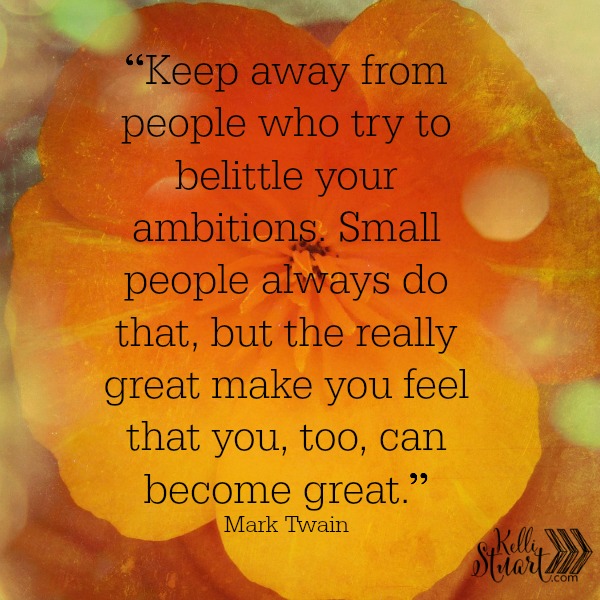
The benefit to having a tribe, a group of people who will surround you in pursuit of making one another better, is that you’re never really alone. But you must be transparent and let people in. You have to share your dreams, to be open about the things that inspire you toward passionate living, in order for people to walk alongside and help you navigate the path.
For a long time, I was embarrassed to admit that I was writing a novel. I shared the information only with people I knew intimately. My reasons for doing this were not noble or humble. They were riddled in fear.
I was afraid that if I failed, if I never finished the book, or it ended up being terrible, that I would never be able to survive the humiliation. So I shied away from discussing my writing.
I quickly realized, however, that a secret passion is terribly difficult to chase down. Without the benefit of having encouragers by my side, I had no real motivation to press forward with the project. I could see it beginning to die.
So I told a few people, then a few more. Then I shared a few snippets of the book with my readers, and an amazing thing happened.
My confidence grew exponentially, as did the people who were cheering me on. This gave me the momentum I needed to push forward until I could finally type the words, The End.
I couldn’t have done it without my tribe of people cheering me on. And now? Now I’m in the throes of seeking publication. It is a discouraging process, filled with rejection, all of which can leave a writer feeling less than confident.
Just when I began to wonder if maybe I’d made a terrible mistake in trying to publish this story – maybe it wasn’t written as well as I hoped – I received a text from a friend encouraging me not to give up, and offering a prayer for the days when I feel overcome with doubt.
Two days later, a conversation with a mentor and friend who believes in me, and who has been a champion of encouragement to me throughout this writing process, told me he believed in me, and he believed in my book. His gracious words melted the fears and doubts that had crept in over the last few weeks.
Do you see the importance of surrounding yourself with encouragers?
If you have a dream, a goal that you’re working toward, have you shared that? Have you entrusted your pursuit with someone (or multiple someones) who will spur you on toward the accomplishment of that dream? If not, can I ask why?
Don’t be afraid of your dreams, and certainly don’t keep them to yourself, even if they seem lofty, impossible, or ambitious. With the power of a team (a tribe) backing you up, you will find that in the moments you want to give up completely, someone will be there to dust you off, turn you around, and keep pushing you forward.
All the way to The End.
by Kelli Stuart | Faith, Life, Novel, World War II, Writing
Benjamin Semenovich Shapolov grew up in Southern Ukraine, near Odessa. Raised in a family of Bible-believing Christians, Benjamin’s story is unique and awe-inspiring. A well-educated man, Benjamin worked hard throughout the war to protect and save the Jews in his area from both the Germans and the Soviets. His life was miraculously spared on numerous occasions.

I will never forget the afternoon I spent with this warm, gentle man. He had a kind face, large eyes, and a mouth prone to wide smiles.
This is his story:
I was born into a family of believers, and I knew the Lord from childhood. My grandparents and parents both taught me strongly to keep the gospel. I was accustomed to look for, and recognize, the will of God.
Right after my father died (in 1932), the horrible famine of the 1930’s began. My mother was left with seven children and herself to feed. It was in these conditions that we lived when the war began. We were always in need – always hungry. We often had only weak soup to eat, but the Lord faithfully kept us through that time and no one died.
In 1937, when I was fifteen, my uncle brought me into the city (Odessa) to live with him. In 1939, I returned to my mother’s village in the northern region of Odessa as a qualified accountant.
The collective farm that my family lived on nominated me to be their bookkeeper when I returned. Though I was only seventeen, I was well-educated and willing to help.
Before he died, my father had a good friend who was a Jew. They often sat in one another’s company and sang hymns together. Early on, our Jewish friend asked the leader of the collective farm to help him build a canteen on his property. When asked why, this Jew replied that a war with Hitler was fast approaching and this canteen would be a hiding place for the Jews.
The leader of the farm agreed to help and for years this canteen was host to many hiding Jews. This was a secret – very few people knew about it. Throughout the war, someone hid inside that canteen everyday.
Because I was the official bookkeeper of the collective farm, it was my duty to issue passports to the villagers. I and the leader of the collective farm both believed in God and we decided to issue all Jews passports in order to help them.
The Soviets frowned upon giving passports to Jews, but without this proper documentation, they were at the mercy of the fascists. The leader and I decided it would be better to save our countrymen by issuing them passports than to submit to the law of the Soviets. By issuing out those passports, we were able to save over three hundred Jews in our region.
When we developed these passports, we always left off the fact that a person was Jewish. Sometimes we had to change a man or a woman’s name from a Jewish name to a Ukrainian name. Now this was very dangerous work, but I always knew that I was following the plan of the Lord and I pressed on without fear.
Three times we were betrayed for doing this work, and each time we were sentenced to be hanged. But the Lord saved us every time, because the Commandant of the German regime who was assigned to our village was a believer in Christ. His mercy saved us, and we continued to help the Jews.
In 1944, the Germans left our village and the Soviet Army came. The Soviets demanded to know how so many people in our village survived the occupation so we gave them the list of names of the people that we had saved. We thought that perhaps we would be commended for our actions, but instead they looked at the list and spoke to us harshly.
For our actions of saving the Jews, the Soviets sent us to a penalty battalion to finish out the war.
We were sent to the front line without any weapons. We were told that the only way we could be redeemed was by our blood. If we were wounded, then our blood would redeem us. If we were killed – our life would redeem us.
So [at the age of 22], I was taken to the front line without protection. Without armor or weapons, we had to get very creative in our battle tactics.
We took empty cans and boxes and cut holes in them so that when we threw them they whistled, sounding like incoming bombs. We frightened the Germans so much that they ran, leaving behind all their weapons and armor. We didn’t have to fire a shot and they all left.
The Lord saved me many times in those years, and by saving me, he saved many other people. Those are only the main important points of my personal history. There are many other stories, but the most important thing to remember is that the Lord saves.
Because I began my service in the Red Army in the penalty battalion, I was never recognized as being a Soviet soldier. But that doesn’t matter to me now. It means nothing to me.
I care only of the Lord’s saving grace.
by Kelli Stuart | All About You, Dreaming, Faith, Goals, Life, Motherhood, Writing
When Kristen Welch contacted me about being part of the launch team for her new book, Rhinestone Jesus: Saying Yes to God When Sparkly, Safe Faith is No Longer Enough, I knew immediately that I was on board.
I’m fascinated by Kristen’s story. Her story could be my story…and it could also be your story. She’s a normal girl like you and like me. She’s a mess, she’s funny, she doesn’t get life right all the time. Her kids fight, her house gets messy, and her marriage has seen its moments in the valleys.
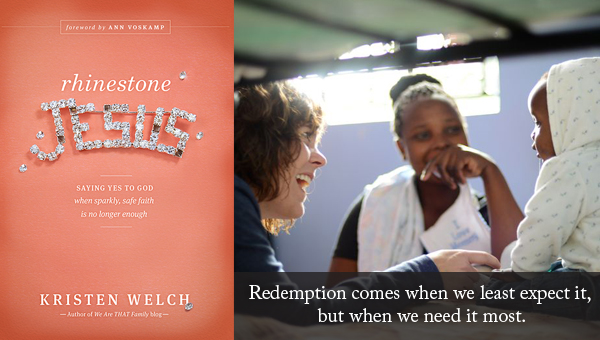
Her story is our story, and I wanted to know more. Because where Kristen’s story takes a sharp turn is at the very moment that she uttered a tiny word.
YES.
Kristen and her family felt a tug to help the struggling young women living in the slums of Kenya. With fear and trepidation, they took steps forward, saying Yes to this dream that seemed impossible, and out of their Yes, The Mercy House was birthed, offering freedom and grace for 12 girls, and 12 babies. The story is miraculous, awe-inspiring, and challenging. Kristen and her family are just like your family and mine. They’re a ordinary family who chose to say yes, and they are doing extraordinary work.
When I began reading Rhinestone Jesus, I worried that it would make me feel inadequate. I feared that maybe I would be more confused, more unsure of what my next step should be.
Instead I was reminded of that which I already knew, but I so quickly forget:
I am the mess, and Christ said Yes to me.
 I am prideful, and judgmental. I’m the girl who yells at her kids, who grows idle with her time. I’m the girl who spent a decade wrapped in the ugly talons of an eating disorder, who was freed from that prison, but who can still look in a mirror and find too many faults to list.
I am prideful, and judgmental. I’m the girl who yells at her kids, who grows idle with her time. I’m the girl who spent a decade wrapped in the ugly talons of an eating disorder, who was freed from that prison, but who can still look in a mirror and find too many faults to list.
I am the girl who will pass on the opportunity to help someone because it’s inconvenient.
I’m the girl with big dreams, who fears she won’t ever have the guts to pursue them.
I’m the girl who wrestles with God, who gets mad at Him, and pours out frustrations over praise far too often.
I’m the girl who struggles with the dichotomy of wanting to give away all we have, and longing to add more earthly treasure to my already hefty mound.
I am that girl, and I am a mess.
But the beauty of receiving Christ, of accepting His Yes of me and all my flaws, is this – Because of Christ:
I am humble and repentant when I fail. I’m quick to ask my children for forgiveness when I yell, and I fight the desire to grow idle with every fiber of my being. I am free from the confines of that eating disorder, and when the lies press down, I have the wisdom of the Spirit to help me fight back.
I look for opportunities to serve, and I long to give freely.
I’m confident that the dreams I have were given to me by God Himself, and I take steps toward them, even if I sometimes feel like I’m walking blind.
When I throw my frustrations at God, He meets me with Grace and Mercy through His Word, every. single. time. He takes my doubts, and He strengthens me in weakness.
I see, and embrace, the blessing that comes from giving, even when the giving is hard.
Because Christ said Yes to me, I am able to say Yes to Him. I could say Yes to adoption, even when it was scary and expensive, and our decision wasn’t fully supported by everyone we knew and loved. And when it all fell apart, I was able to say Yes to disappointment, to knowing God deeper through brokenness.
We were able to say Yes to hosting a child who needed love, to pouring our time and energy into her for a month, and sending her home with a piece of our hearts.
I say Yes every day when I fold my laundry, hug my children, serve my husband, live my life. My Yes isn’t always big – it’s a simple response, because the Big Yes was offered on my behalf with Christ’s death, burial and resurrection.
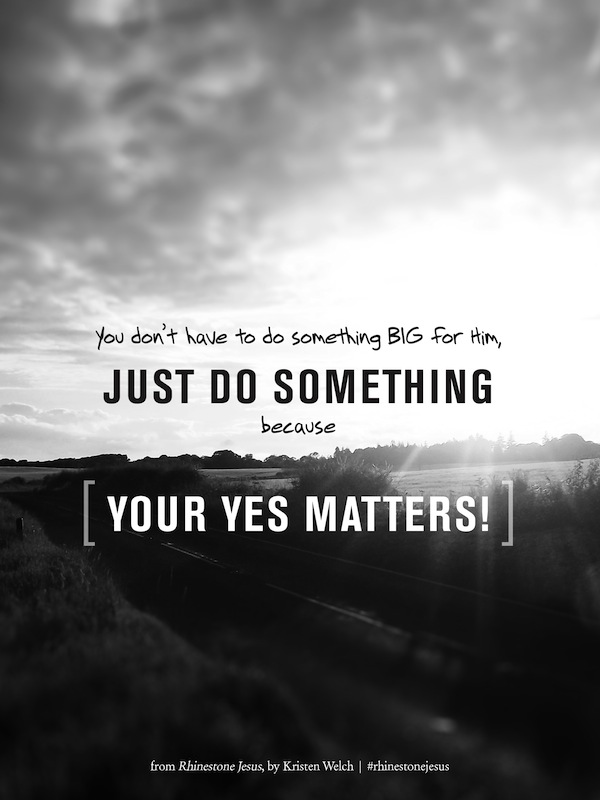
I write this today to encourage you. We are all broken. We all feel a hot mess, and I want you to know that Christ said Yes to you, for you. You can embrace that and cling to it on the days when you don’t feel like you’re enough.
I also have the privilege to give away TWO of Kristen’s books to two of you.
I cannot recommend this book strongly enough. If I could afford to give one to every single person I know, I would.
To enter for a chance to win one of two copies of Rhinestone Jesus: Saying Yes to God When Sparkly, Safe Faith is No Longer Enough, simply leave a comment. Let me know how God has redeemed you in your mess. Share how you are able to say Yes to Him in return. Tell me anything you want to share – one comment will enter you to win.
The comments will remained open until Thursday, May 1, when Rhinestone Jesus officially releases. You can, however, purchase the book already in pre-release. If you’re anxious to own your own copy of Rhinestone Jesus, you can purchase it at the following places:
Amazon
Barnes and Noble
Christian Book.com
Family Christian
Books-A-Million
This post was long. Sorry – I try not to do that too often. Thanks for sticking with me until the end. I am pleading blessings and grace over all of you as you enter into this weekend. I pray that you feel the power of Christ’s Yes to you, and that you, in return, will know the power of saying Yes to Him.
*The giveaway is now closed. Winners have been notified. Thanks everyone for entering!
Disclaimer: I was given a copy of the book to review, and two copies to give away. All opinions expressed are my own.
by Kelli Stuart | Adoption, Elsewhere, Faith, Writing
I’m posting at Mercy Found Ministries today. Join me there? Thanks, friends, and Happy Monday!
This post is written to the parents who have walked the heartache of a terminated or disrupted adoption. It’s a unique situation to be in – a club no one wants to join. I want you to know today one very important thing:
Your grief is real, and it is valid.

Perhaps you’re right in the midst of this trial. Maybe it is something you experienced long ago. Either way, the loss of a child through a disrupted adoption leaves a lasting scar.
It’s a mark on the heart that heals, but never really leaves.
When our adoption was terminated, I struggled with exactly how to process it. I wondered if perhaps I was overreacting, if my emotions were displaced and over-dramatic. I feared that people saw me as whiny, and perhaps more emotional than necessary considering the fact that we had not even met the child we were hoping and praying to adopt.
For the most part, this inner strife was self-imposed. I didn’t have a string of insensitive remarks being flung my way to back these these feelings of inadequacy. This was my own struggle, and it gnawed at me for a long time.
Did I really deserve to be so sad over our failed adoption attempt?
I walked through those early days after it all fell apart in a fog. In fact, I can barely remember the month of January, 2013. It is very hazy. Grief does that – it clouds the mind, and shrouds the memory with a sense of heartache that you never really escape.
Every day, I was sure that the people around me rolled their eyes behind my back, ready for me to get over it and move on. I questioned God, trying to make some theological sense of our predicament.
Did we really lose a child, or was there never a child planned in the first place, since He is All-Knowing, and He knew from the beginning that we would not be able to complete the process?
My mind spun throughout the long, dark hours of the night, trying to break it all apart, to make some sense of it all. It was a “chicken or the egg” riddle without a clear-cut answer, and it made me crazy….
Read the rest of this post at Mercy Found Ministries.









